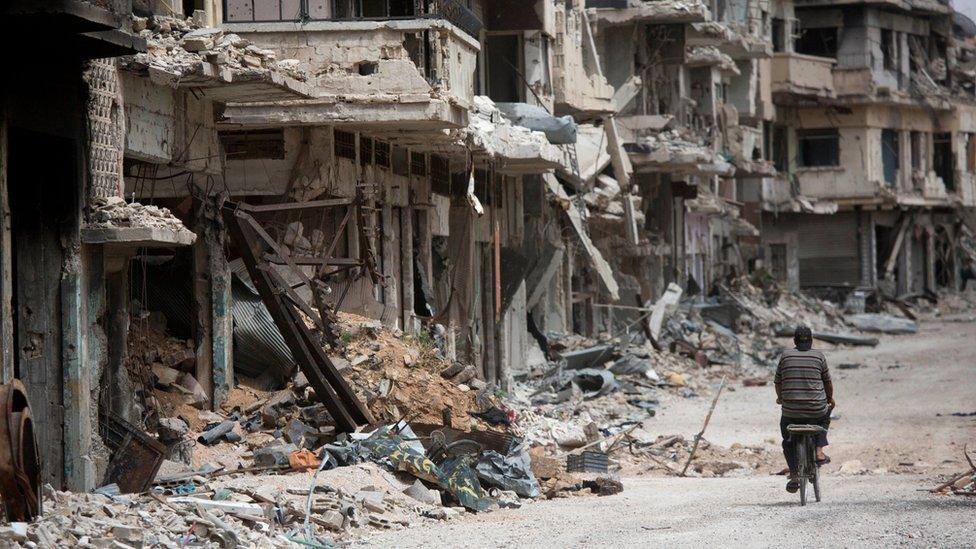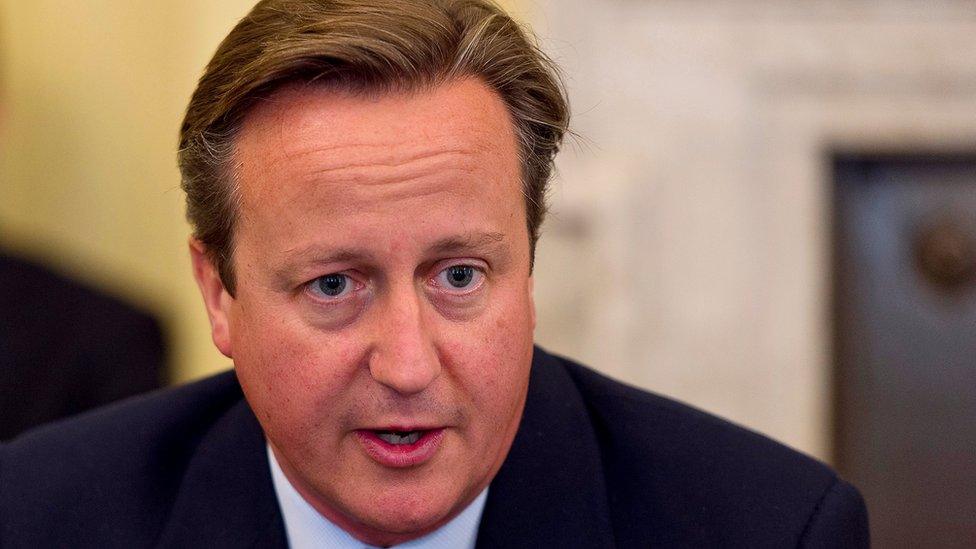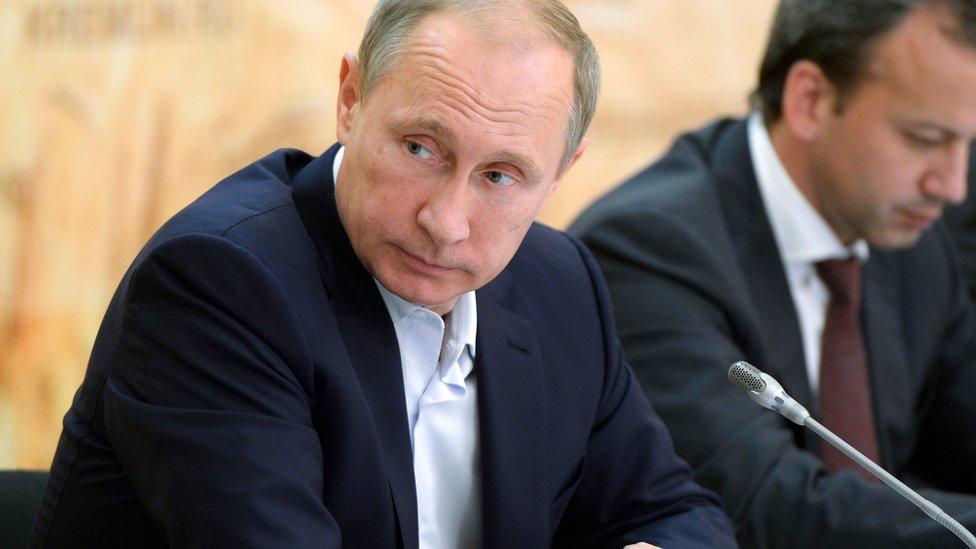David Cameron to call for new Syria peace drive at UN
- Published

Leaders are expected to discuss Syria as they attend the 70th anniversary meeting of the UN General Assembly
David Cameron will call for a new diplomatic drive to end Syria's civil war as he meets world leaders at the United Nations in New York.
The UK prime minister is expected to drop his opposition to Syrian President Bashar al-Assad playing a role in any transitional government.
But he said Mr Assad "can't be part of Syria's future".
US Secretary of State John Kerry said he hopes the talks can help find a political solution to Syria's crisis.
Russian President Vladimir Putin and US President Barack Obama will be among other leaders attending the 70th anniversary meeting of the UN General Assembly.

David Cameron is also expected to urge more support for refugees
En route to New York, Mr Cameron told reporters that President Assad had "butchered his own people" and was "one of the great recruiting sergeants" for so-called Islamic State.
"He can't play a part in the future of Syria and that position hasn't changed," the PM continued.
"Obviously conversations about how we bring about transition are very important and that's what we need to see greater emphasis on."
Despite signalling Mr Cameron would be prepared to discuss Mr Assad's involvement in a political transition, one senior British official told the Press Association: "The prime minister's view is still very clearly that in the endgame you need a different leader to build a peaceful and inclusive Syria."
Asked if he believed Mr Assad should face prosecution at the International Criminal Court, Mr Cameron said: "People who break international law should be subject to international law."

Analysis: James Robbins, BBC diplomatic correspondent, New York
This is a very big shift in David Cameron's position because he's signalling - albeit in quite coded language - that President Assad might be able to remain in office for some time during a political transition in Syria.
This matters because there is currently a complete deadlock with Russia - which supports the Assad regime - that has prevented an end to the terrible civil war.
David Cameron's move - echoed by other nations, including the US - suggests there could be a way forward. It also looks like, from some of his words in recent days, that Russia's President Putin may be relaxing his position somewhat too.

Meanwhile, France has carried out its first air strikes against Islamic State (IS) militants in Syria. President Francois Hollande's office said that French planes struck targets identified during reconnaissance missions conducted over the past fortnight.
UK officials also warned finding a solution to the four-year conflict had been made more complicated by Russian military build-up in support of Mr Assad's regime.

Mr Cameron is not expected to hold talks with Russian President Vladimir Putin
Russia is reported to have moved warplanes, helicopters, tanks, drones, artillery and troops into a military airbase near Latakia and the seaport of Tartus in Syria in recent weeks.
However, Russia has previously said this move was "defensive in nature" and about self-protection.
At the summit Mr Cameron is not expected to meet Mr Putin.
But British officials have acknowledged they will need to work with Russia to find a diplomatic solution.
"There has always been the idea that there will be a political transition and there are differing views between members of the international community... what the steps are in the process. That is where there is more discussion ongoing," a senior British official said.
Foreign aid
Last week, German Chancellor Angela Merkel said Mr Assad should be involved in peace talks, but France's foreign minister Laurent Fabius urged a united European strategy against such involvement.
Mr Kerry said he had discussed the crisis with Iran's foreign minister and would do the same with Russian representatives on Sunday.
Mr Cameron also spoke at the sustainable development summit,, external ahead of the main General Assembly meeting which begins on Monday.
He urged rich nations to match the UK's legally binding commitment to devote at least 0.7% of national wealth to foreign aid and said extra investment was needed if new 15-year United Nations development targets were to be met across the world's poorest countries.